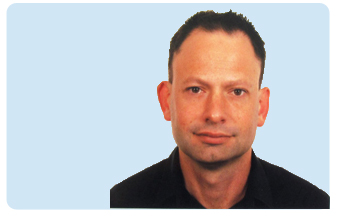Natal van Riel is Associate Professor in Systems Biology and Metabolic Diseases, Department of Biomedical Engineering, Eindhoven University of Technology, the Netherlands.
Can you summarise your career path?
Currently, I am an Associate Professor in Systems Biology and Metabolic Diseases at the Eindhoven University of Technology (TU/e). I received training in system and control engineering as part of an electrical engineering program. In 2000 I obtained a PhD degree in Molecular Cell Biology from Utrecht University. I returned to Eindhoven to work on the application of system and control theory to understand biological processes. In 2003 I initiated Systems Biology research at TU/e, which was expanded when I joined the Biomedical Engineering department in 2006 to lead the Computational Systems Biology research program as Assistant Professor. In 2014 I was a visiting scholar of the Dept. of Bioengineering at the University of California San Diego. My current research focuses on metabolic network modelling, methods for model parametrization and analysis of dynamic models, and applications in Metabolic Syndrome and associated diseases such as Type 2 Diabetes.
Where do your best ideas emerge from?
That can be very different, but in general in a multidisciplinary environment and by interacting with new people. Last year I spent time in the group of Bernhard Palsson at UCSD (San Diego) for a short sabbatical. There was plenty of time to catch-up with the literature and think. Many novel ideas emerged, which we are currently implementing in ongoing and new Systems Medicine projects in Eindhoven.
Who or what had or has had the strongest positive influence on your career and work?
There are many people who inspire me. Prof. Theo Verrips was my PhD supervisor. He was a principal scientist at Unilever Research and a professor at Utrecht University, combing basic science and industrial research and development. My own research is also driven by a combination of curiosity and the wish to contribute with knowledge and tools that can be used.
Prof. Paul van den Bosch has been very important as mentor throughout my educational path and in my career. When finalizing my Master Thesis on dynamic systems in his group, he suggested me to consider a PhD traineeship in a biotechnology project at Unilever Research in Vlaardingen (the Netherlands). Later, he convinced me to return to Eindhoven University of Technology and pursue an academic career related to biomedicine.
What do you consider the greatest challenge or hurdle for progress in your field?
The time is right for Systems Medicine. More and more data from well-phenotyped cohorts become available and computational algorithms and modeling become more powerful. However, accessing, sharing and re-using data is a major bottleneck. Currently it is impossible to link databases across different countries, not because of technical problems but because of diversity of ethical legislation. There is also a need for databases that include high quality data from longitudinal studies.
What are, in your opinion, the opportunities, directions or decisions that are vital to progress systems medicine?
Despite the deluge in biological data, experimental and clinical data that is suitable to develop models and validate model predictions are still limited. Collecting quantitative data of high quality remains cumbersome. From the modelling perspective, it is important to address the accuracy of model predictions. Due to the complexity of the systems we are studying and the finite accuracy of the experimental data that we use to develop the models from, we need to consider ensembles of model simulations to reflect different sources of variability and uncertainty. This also links to the challenge to develop methods that can work with clinical data and are not tailored only for data from sophisticated scientific studies.
Tell us what would have to happen in your work for you to say “A dream has come true!”?
If the computational algorithms and models we develop would find their way into the clinic and contribute to health and healthcare. However, this is clearly an ambition for the long term.
If you could not be a scientist, what would you like to be?
If I wouldn’t have chosen the PhD project with Unilever Research, I probably would have been a Control Engineer designing control systems for high-tech systems. (In 2000 I worked for a while as Control Engineer at ASML, Veldhoven, developing photolithography systems for the semiconductor industry.)
What was your greatest experience as a scientist?
Having a paper being accepted for publication and a grant awarded is always nice. I get really excited when our computational models generate predictions that are unexpected based on common knowledge or hypotheses that have been around in the field for a while. This prompts to the opportunity to learn something new. Such as when we identified the time-dependent metabolic fluxes that result after systemic induction of the Liver X Receptor (a nuclear receptor) and hereby could explain the observed increase in HDL cholesterol (the ‘good cholesterol’) and the origin of the triglycerides accumulating in the liver. If such predictions then turn out to be correct when put to the test in experiments this makes the effort of developing and scrutinizing the models truly rewarding. This is really great and requires long-term collaborations with skilled experimentalists.
Would you be happy to share something about your private life and activities in your spare time?
I have two daughters (7 and 3 years of age). In the winter I enjoy skiing, in the summertime outdoor life. Until a year ago, I was an elected member of the town council in my place of residence.
